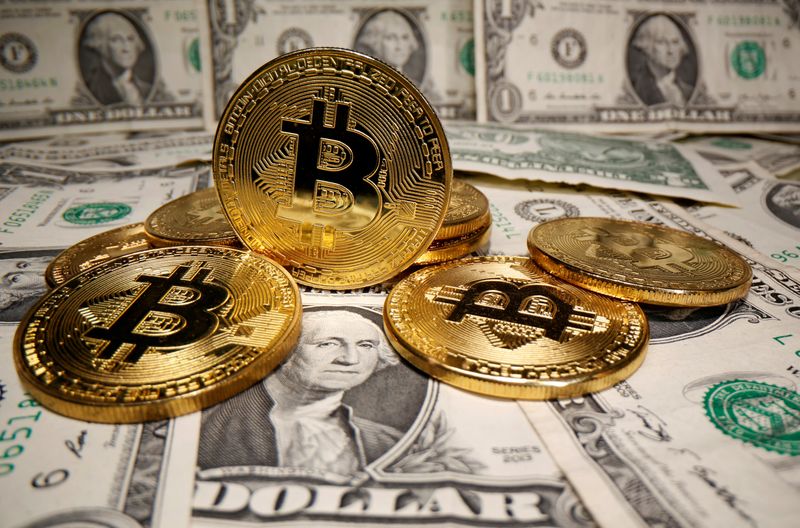By Colm Fulton
STOCKHOLM (Reuters) - A new way to pay is causing existential angst among Swedish bankers who worry that the e-krona, an electronic equivalent of Sweden's currency, could cost them their deposit base.
Sweden launched a review into the e-krona's feasibility in December after a pilot programme at the central bank, making the Nordic country a litmus test for digital currencies.
The Riksbank wants making payments in e-krona to be "as easy as sending a text", but bankers in Stockholm say this would radically change the dynamic of the banking system.
Like a banknote or coin, the holder of an e-krona has a direct claim on the central bank, effectively bypassing commercial banks, where most state-backed money is held.
"A rational household would hold its money with the Riksbank," Masih Yazdi, chief financial officer of Sweden's largest corporate bank SEB, told Reuters, adding that a central bank offers better interest rates and protection.
As people use less physical cash and alternative currencies such as Bitcoin gain ground, many countries around the globe are looking at issuing their own central bank digital currencies (CBDC).
The Bahamas launched the world's first CBDC in October and China is expected to have a digital yuan within two years.
Sweden, the least cash dependent economy in the world, is leading the way among Western countries and the government is due to reach a decision by November 2022 on whether to pursue the e-krona.
For a graphic on Central bank digital currencies across the world:
https://graphics.reuters.com/CENBANKS-DIGITAL/oakpejoervr/chart.png
BORN TO RUN?
If Swedes moved their money out of deposit accounts and into e-krona, this would potentially deprive banks of funding and leave them reliant on wholesale markets for liquidity.
Yazdi is concerned this could make the sector debt-laden and unprofitable, undermining financial stability.
"If you have a bank account but you can - at the click of a button - move your money to the central bank ... that could risk instability in the system," Yazdi said.
Riksbank Deputy Governor Cecilia Skingsley has dismissed such concerns, saying people can already exit the banking system by buying treasury bills.
"We already have to face the risks that there are cyber runs out of the banking system. I don't think a CBDC will fundamentally change that to a worse situation," Skingsley told Reuters in November.
Rickard Eriksson, an advisor for the Swedish Bankers Association is concerned that the Riksbank has not made it clear what it will do with the money it collects.
It could hold the capital or lend it to the banks to make up their funding shortfall. However, this would mean the availability of mortgages or corporate loans would depend on the Riksbank's credit risk appetite.
"I don't think the Riksbank has really thought about this or come up with good answers," Eriksson said.
The Riksbank did not comment when asked about this issue by Reuters.
POLITICAL DECISION
Although the Riksbank has not yet specified a detailed plan for the e-krona, Yazdi said one option could be to cap e-krona at an amount which only replaces cash in the system.
Skingsley said issuing a CBDC which does not bear interest would limit a central bank's ability to impose its policy rate.
Yet, this would cross a line for Swedish banks, which may end up having to compete with the Riksbank's base rate.
And by digitalising cash, the Riksbank risks straying into areas beyond monetary policy, such as privacy, as payments in e-krona - which is based on blockchain technology - can be traced, SEB's Yazdi said.
"Nothing you buy will be anonymous," he said, adding a positive outcome would be that it is harder for criminals to evade detection or anti-money laundering controls.
Riksbank governor Stefan Ingves said in October the decision on whether to issue an e-krona needs to be made by politicians.
"The concept of a central bank digital currency raises many questions on possible advantages and disadvantages," financial markets minister Per Bolund said after he launched the review.

Eriksson said the Riksbank had little support when it began talking about the e-krona a few years ago, but he fears this may have increased as other central banks consider their own CBDCs.